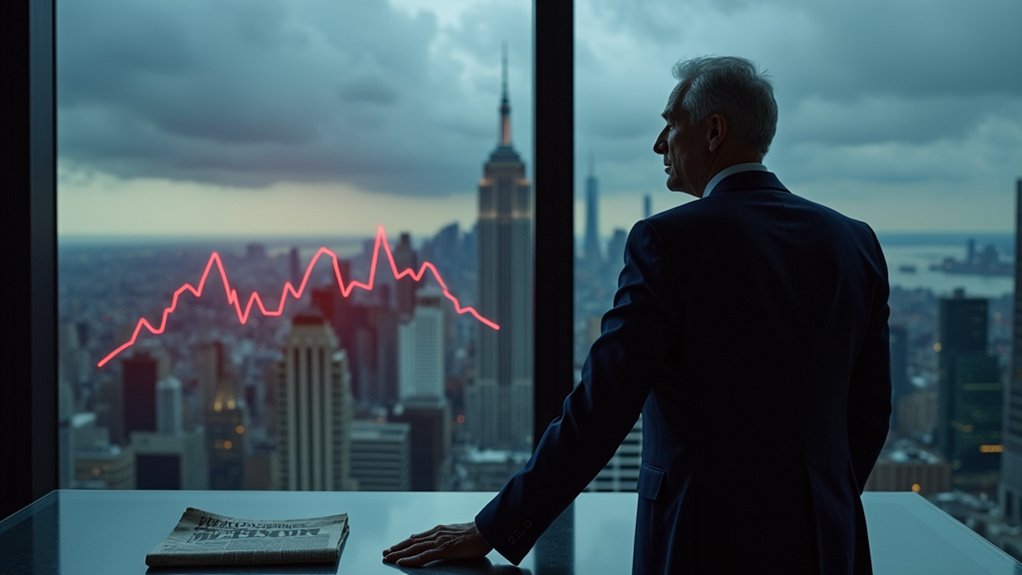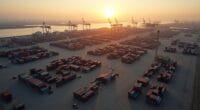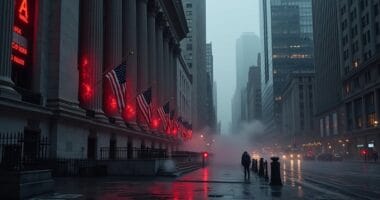JPMorgan CEO Jamie Dimon is sounding the alarm on Wall Street’s dangerous complacency toward tariff risks. Markets seem oblivious to the looming threat of trade tensions, with Dimon predicting a potential 10% market selloff. Asset prices are running too hot, and companies will likely slash earnings forecasts as tariff impacts hit home. The credit crunch is tightening its grip, and cheap financing is drying up. There’s more to this economic storm brewing beneath the surface.

Most investors are asleep at the wheel when it comes to tariffs – at least according to Jamie Dimon. The JPMorgan CEO didn’t mince words during the bank’s 2025 Investor Day presentation, describing what he sees as an “extraordinary amount of complacency” in today’s markets. Apparently, Wall Street hasn’t gotten the memo about Trump’s tariffs.
Here’s the reality check: markets are due for a rough awakening. Dimon predicts a potential 10% selloff, and that’s just for starters. Companies are about to slash their earnings forecasts, and those high-flying U.S. asset prices? Yeah, they might not stay that way for long.
Brace for impact: A 10% market plunge looms as companies prepare to slash earnings amid inflated asset prices.
The problems run deeper than just stock prices. Cheap financing is drying up, and a credit crunch could be lurking around the corner. His assessment of deteriorating credit quality points to significant risks ahead. The rising inflation rates could further complicate economic stability across the nation. But here’s the kicker – central banks might not be able to save the day this time. Dimon took a swipe at them too, calling them “almost complacent” and suggesting they’re a bit too confident in their own powers. Turns out you can’t fix tariff-induced trade friction with a simple interest rate adjustment.
America’s position in the global economy isn’t set in stone either. While the U.S. has been busy starting trade wars, other countries have been quietly making deals that bypass Uncle Sam altogether. It’s like watching a game of economic musical chairs, and the U.S. might find itself without a seat when the music stops.
The timing couldn’t be worse. With asset prices “kind of high” (Dimon’s understated way of saying “expensive”), markets are particularly vulnerable to tariff shocks. These aren’t just short-term hiccups we’re talking about – these are structural changes that could reshape global trade patterns for years to come.
Bottom line? The market’s collective shrug at tariff risks might prove to be a costly mistake. While investors keep whistling past the graveyard, Dimon’s warnings suggest the economic undertaker might already be measuring for a coffin.





